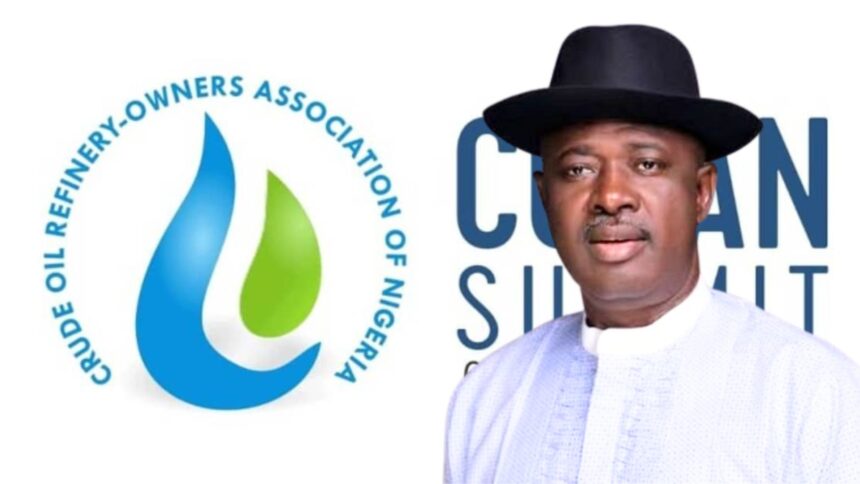… indigenous refining key to energy independence, industrial growth under Tinubu’s renewed hope agenda- Sen. Lokpobiri
Oredola Adeola
The Federal Government has described the Dangote Refinery & Petrochemical, Waltersmith Petroman Refinery, Aradel Holdings, and other similar projects as symbols of confidence in its policy direction, noting that they are strengthening Nigeria’s downstream sector.
Sen. Heineken Lokpobiri, Minister of State for Petroleum Resources (Oil), made this known in his address at the 2025 Crude Oil Refinery Owners’ Association of Nigeria (CORAN) Summit, held on October 7, 2025, at Eko Hotels & Suites, Lagos, with the theme “Refining – Key to Energy Security in Africa.”
The Minister reaffirmed its commitment to replicating such initiatives across all oil-producing states.
According to him increased local refining capacity will enable the country to meet domestic demand and become a reliable supplier of refined products to neighbouring nations, thereby reducing regional dependence on distant refineries and maritime imports.
He said, “Nigeria and indeed Africa stand at a critical juncture; one that calls for decisive action to guarantee our energy security, promote indigenous refining, and position the continent as a net exporter of petroleum products.
“Under the Renewed Hope Agenda of President Bola Tinubu, indigenous
refining has been identified as a critical pathway to energy independence, job creation, and industrial revitalization.
He stated that through the Nigerian Midstream and Downstream Petroleum Regulatory Authority (NMDPRA), the government has streamlined the licensing regime; from Licence to ensuring that genuine investors are supported, not hindered, by bureaucracy.
Lokpobiri further explained that, as part of a deliberate policy and broader strategy, the naira-for-crude sales agreement remains a key measure aimed at reducing the cost of fuel production, minimizing exposure to exchange rate fluctuations, and supporting indigenous refining operations.
He stated that in extending Nigeria’s refining influence beyond its borders, the government launched the West African Fuel Reference Market, designed to position the country as a regional refining and product supply hub for the West African subregion.
The Minister assured that with increased local refining capacity, Nigeria will not only meet its domestic fuel needs but also emerge as a reliable supplier of refined products to neighbouring countries—thereby reducing the region’s dependence on distant refineries and maritime imports.
According to him, this initiative aligns with the African Union’s vision for energy integration and intra-African trade under the African Continental Free Trade Area (AfCFTA) framework.
Senator Lokpobiri emphasized that the government’s priorities include ensuring feedstock security for all licensed refiners, deepening fiscal incentives to attract more investment, and enhancing collaboration among the Ministry, NMDPRA, NUPRC, and security agencies to combat crude oil theft and pipeline vandalism while strengthening relationships with host communities.




